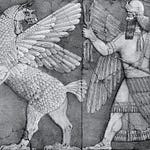On this week’s episode, I welcome back my good friend John Felis to explore what is called “Stuck Culture”—the idea that novel and original cultural output has come to a standstill. Our discussion, though, will focus less on what it is than if it is. These days, we seem to be suffering from two different and contradictory forms of malaise: both a deficiency and an excess of novelty. While on the face of it, this would seem to negate the principle of noncontradiction, when looked at from a deeper level, it is revealed that they are in fact two sides of the same coin.
To attempt to get to the bottom of this question, we explore this topic through the lens of an ancient account of what has come to be known as the Peloponnesian War that took place between the Greek cities of Athens and Sparta from 431-404 BC written by the Athenian general, and participant in the war, Thucydides. This text is particularly useful for trying to understand what is going on today because of one of the central terms that reoccurs throughout: stasis.
In English, we generally employ this word to mean “a state of inactivity or equilibrium;” yet in the Greek it means “civil strife,” or to put it in more contemporary terms, “civil war.” Etymologically, stasis literally means “standing” or “stoppage”—which implies stagnation; yet civil strife would seem to be the very peak of motion and activity—of chaos. The duality of this concept, I believe, helps to reveal the true nature of what is happening in our culture today.









Share this post